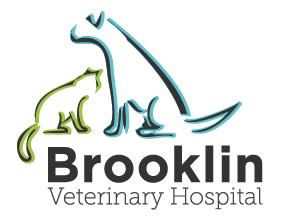Library
-
When household dogs fight, it can be physically dangerous and emotionally disturbing. An accurate behavioral assessment is critical to learn the motivation for aggressive behavior. Both dogs should be screened for medical and behavioral illnesses that may be causing or contributing to aggressive behavior.
-
When household dogs fight, it can be physically dangerous and emotionally disturbing. An accurate assessment is critical to learn the motivation for the aggressive behavior. Often, a treatment strategy that includes behavior modification, management, and medication can create a positive outcome by improving predictability and safety. In some serious cases, permanent separation or rehoming should be considered.
-
Even though dogs are a social species, some dogs exhibit aggression toward dogs outside their immediate social circle. There are many possible reasons for the behavior, and an accurate assessment is essential. A medical exam is important to check for underlying pain or illness. Treatment can be effective once the causes for the behavior have been determined.
-
Treatment for aggression toward unfamiliar dogs is available, and the outcome can be positive. An accurate medical and behavioral assessment is needed as treatment plans are designed based on the context and underlying motivation for the behavior. To start, management is used to prevent aggressive encounters. Behavior modification is always needed and may include desensitization, counterconditioning, and response substitution. Medication is sometimes used to lower anxiety and frustration.
-
Urine marking is normal in both male and female dogs and can even occur in dogs who are spayed or neutered. The underlying cause for urine marking should be determined so that an appropriate treatment plan can be implemented. Management, prevention, and supervision are important for a good outcome.
-
Dogs often steal objects to play with them or to get someone to chase them. Stealing thus becomes rewarding to the dog. Supervision to prevent stealing is the best strategy. It is important to refrain from chasing your dog to retrieve stolen goods. Dogs can be trained to give back stolen items.
-
Dogs dig for a variety of reasons. It may be done to accomplish a goal that, to a dog, is reasonable, but it can also be a sign of an underlying behavior disorder. This handout describes the most common causes of destructive digging and methods that can be used to manage it.
-
This handout discusses the causes and potential treatments for excess gas (flatus or flatulence) in dogs. Factors such as diet, speed of eating, exercise and foods to avoid are highlighted.
-
The relationship between people and their dogs is an unconditional bond where dogs understand more about us than previously thought. They know how to read our feelings and respond appropriately to either help us or celebrate with us. A combination of visual, auditory, and even scent cues help them put together a full picture of our current emotional state.
-
Ear canal tumors are abnormal growths that can develop from any part of the ear canal (the skin, the glands of the skin that produce earwax and oil, and the underlying connective tissues, muscles, and bones). Initially, these tumors may appear as one or more pink, white, or purple nodular masses in the ear canal. If benign, they may grow to a certain size and may or may not be problematic. If malignant, they may grow, ulcerate (break open) and bleed, and nearly always become infected, causing recurrent or chronic ear infections. The treatment of choice for ear canal tumors is surgical excision.



